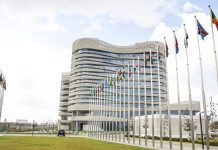Africa-Press – Ethiopia. Ethiopia’s Special Economic Zones (SEZs) have emerged as leading destinations for capable and high-quality foreign investors, according to State Minister of Industry Tarekegn Bululta.
He noted that the country’s homegrown macroeconomic reform program has revitalized commerce and investment, creating conditions that are drawing both domestic and international investors to opportunities within the SEZs.
Industrial production remains one of Ethiopia’s primary pillars of growth, alongside agriculture, mining, digital technology, and tourism, he said, adding that the government’s strong focus on developing SEZs is enabling the sector to play a constructive role in national development.
According to the State Minister, rising industrial productivity and the expansion of integrated agro-industrial parks are driving significant progress in import substitution, job creation, and export competitiveness.
Currently, Ethiopia hosts thirteen government-managed SEZs and seven operated by private developers. Tarekegn said these zones are making a positive contribution to sectoral output, particularly in processing agricultural products.
According to him, improvements in power-supply infrastructure are ensuring that SEZ developers can operate at full capacity while maintaining high product quality.
As an example, he highlighted the Japanese solar manufacturer TO Solar, based in the Hawassa Special Economic Zone, which is helping position Ethiopia as an emerging player in the global renewable energy market.
The state minister reaffirmed that the government will intensify efforts to attract high-caliber developers through Foreign Direct Investment (FDI) and provide them with strong support.
At the same time, a new operational framework is being rolled out to boost local investor participation in industrial parks, strengthening the sector’s ongoing transformation.
This investor-friendly approach, he noted, is already resulting in a substantial increase in domestic engagement across the parks.
Tarekegn concluded that the revival of the industrial sector, particularly agro-processing, is significantly reinforcing import substitution and export competitiveness, while helping cultivate a stronger culture of consuming locally-produced goods.
For More News And Analysis About Ethiopia Follow Africa-Press






